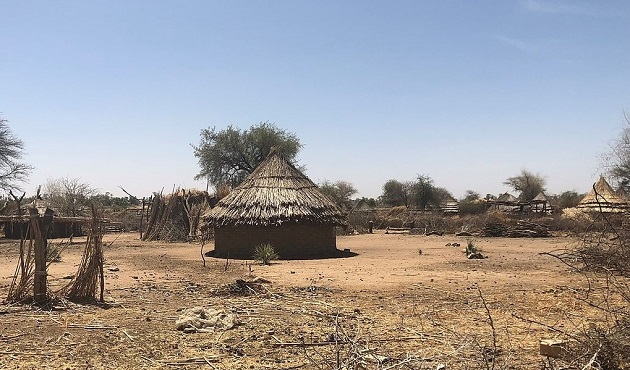The Christians were not taken to any court of law during their nearly two weeks of jail and interrogation.
 Village in South Darfur, Sudan. / Wikipedia CC, Chansey
Village in South Darfur, Sudan. / Wikipedia CC, Chansey
After torturing them and threatening to charge them with serious crimes, authorities in Sudan have released 13 Christians arrested in the Darfur Region, sources said.
Personnel from Sudan’s National Intelligence and Security Services (NISS) released 12 of the Christians by Sunday (Oct. 21) and freed church leader Tajaldin Idriss Yousif on Monday, all without charges, but they threatened to charge the native Darfur evangelist and others with apostasy, public disturbance and crimes against the state, sources said.
“All of them were said to be tortured by NISS and are in bad shape,” a source said. “One of them is said to be in critical condition owing to torture. He is said to have been vomiting and bleeding. He was rushed to a hospital, but he was not attended to by the physicians in that hospital.”
The 13 Christians from four different house churches were worshipping together on Oct. 10 in Nyala, capital of South Darfur state in western Sudan’s Darfur Region, when NISS officers disrupted the service and arrested them, sources said.
NISS authorities did not give any reason for the arrests, but sources said they are targeting converts from Islam from Darfur and, in south-eastern Sudan, South Kordofan state. Three of the Christians were said to be from the Nuba Mountains area in the country’s southeast.
The Christians were not taken to any court of law during their nearly two weeks of jail and interrogation.
Along with team leader Yousif, arrested were members of his church Alfadil Ismail Alnil, Ahmed Mohammed Hassan, Neseraldin Osman, Shemen Ahmed Shemen and Abubaker Biri.
Other Christians arrested were identified only as Kamal, Abdullah, Mutasim, Mujahid, El Sadik Afendi, Bolis Suliman and Abdel Maseh. NISS, widely known as a notorious agency staffed by hard-line Islamists, may hold people in detention for up to four and a half months without charges.
Following the secession of South Sudan in 2011, Sudan President Omar al-Bashir vowed to adopt a stricter version of sharia (Islamic law) and recognize only Islamic culture and the Arabic language. Church leaders said Sudanese authorities have demolished or confiscated churches and limited Christian literature on the pretext that most Christians have left the country following South Sudan’s secession.
The Sudanese Minister of Guidance and Endowments announced in April 2013 that no new licenses would be granted for building new churches in Sudan, citing a decrease in the South Sudanese population.
Sudan since 2012 has expelled foreign Christians and bulldozed church buildings on the pretext that they belonged to South Sudanese. Besides raiding Christian bookstores and arresting Christians, authorities threatened to kill South Sudanese Christians who do not leave or cooperate with them in their effort to find other Christians.
Sudan fought a civil war with the south Sudanese from 1983 to 2005, and in June 2011, shortly before the secession of South Sudan the following month, the government began fighting a rebel group in the Nuba Mountains that has its roots in South Sudan.
Due to its treatment of Christians and other human rights violations, Sudan has been designated a Country of Particular Concern by the U.S. State Department since 1999.
Sudan ranked fourth on Christian support organization Open Doors’ 2018 World Watch List of countries where it is most difficult to be a Christian.

Las opiniones vertidas por nuestros colaboradores se realizan a nivel personal, pudiendo coincidir o no con la postura de la dirección de Protestante Digital.
Si quieres comentar o